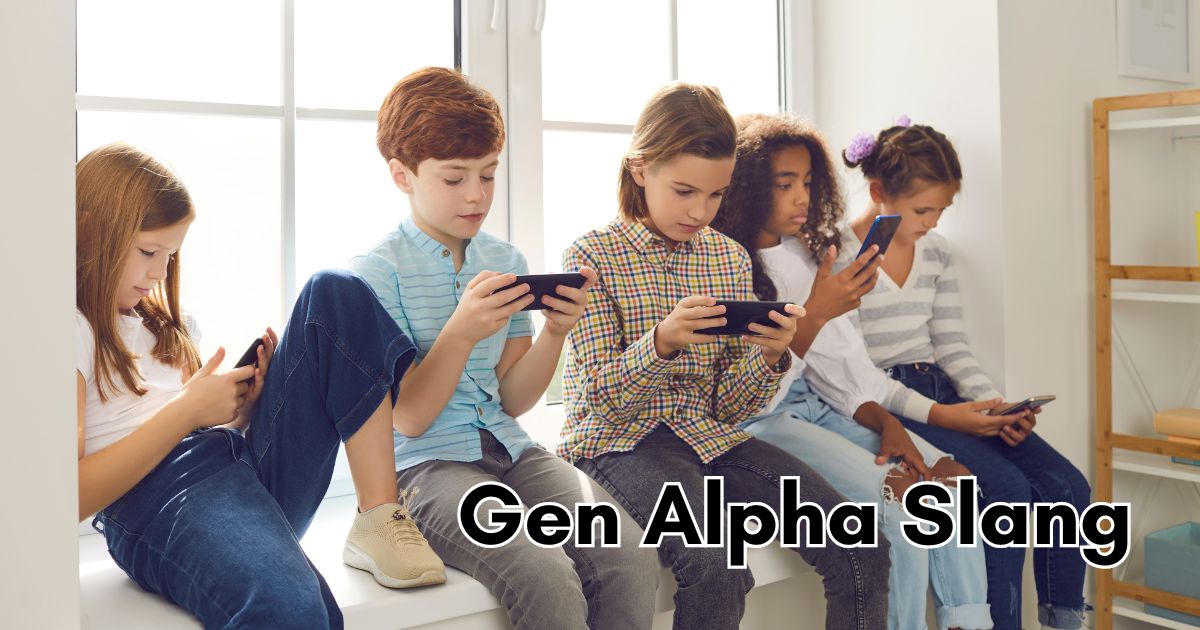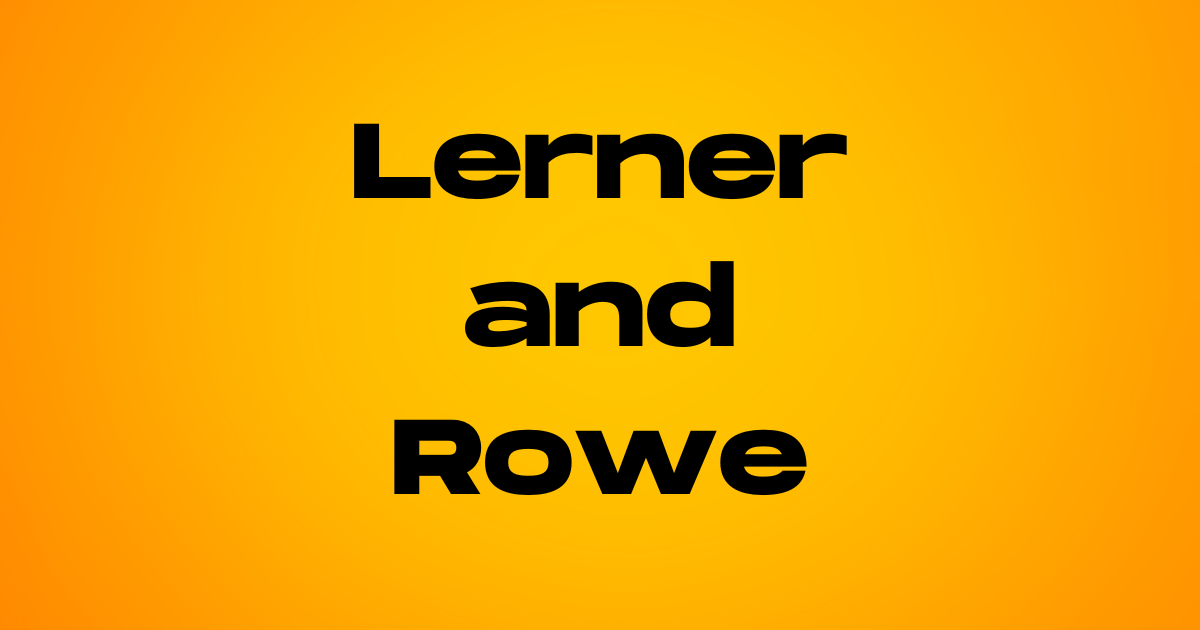Generation Alpha, often abbreviated as Gen Alpha, refers to the cohort of individuals born from 2010 onwards. This generation is the first to be born entirely in the 21st century, growing up in a world where technology is seamlessly integrated into daily life. Gen Alpha children are digital natives, exposed to smartphones, tablets, and the internet from a young age. This technological immersion has significantly influenced their communication styles, particularly their use of slang, known as Gen Alpha slang.
Importance of Understanding Gen Alpha Slang
Understanding Gen Alpha slang is crucial for several reasons. Firstly, it allows for better communication with this emerging generation, fostering stronger connections and mutual understanding. For parents, educators, and marketers, decoding this slang can bridge the generational gap and enhance engagement. Moreover, as Gen Alpha matures and becomes more influential, their slang will likely permeate mainstream culture, making it essential for society to keep up with these linguistic trends.
Historical Context of Slang
Evolution of Slang Over the Decades
Slang has always been a dynamic and evolving aspect of language, reflecting cultural and societal changes. In the past, slang was often tied to specific subcultures or regions. For example, the 1920s saw the rise of “flapper” slang, while the 1960s introduced terms from the counterculture movement. Each decade has brought its unique contributions to the lexicon, with slang often reflecting the prevailing attitudes, technologies, and cultural shifts of the time.
Comparison with Millennial and Gen Z Slang
Millennials and Gen Z have also significantly influenced contemporary slang. Millennials, born between 1981 and 1996, popularized internet slang and abbreviations such as “LOL” (laugh out loud) and “BRB” (be right back). Gen Z, born between 1997 and 2012, further evolved slang with terms like “lit” (exciting) and “salty” (bitter or upset). Gen Alpha’s slang builds on these foundations but is distinctively shaped by their unique experiences and technological landscape.
Characteristics of Gen Alpha Slang
Digital Native Influence
Gen Alpha’s slang is heavily influenced by their status as digital natives. Growing up with instant access to information and communication tools has made them adept at creating and adopting new linguistic expressions rapidly. Their slang often incorporates elements from the digital world, such as gaming terminology, internet memes, and social media trends.
Impact of Social Media
Social media platforms like TikTok, Instagram, and Snapchat are crucial in spreading and evolving Gen Alpha slang. These platforms allow slang to go viral quickly, with users adopting and adapting new terms at a rapid pace. The visual and interactive nature of these platforms also means that Gen Alpha slang is often tied to specific gestures, memes, or video formats, making it a multi-modal form of communication.
Shortened and Abbreviated Words
One notable characteristic of Gen Alpha slang is the prevalence of shortened and abbreviated words. This trend is partly driven by the need for brevity in text messaging and social media posts. For instance, “fam” (family) and “sus” (suspicious) are commonly used abbreviations. This linguistic economy reflects the fast-paced, concise communication style favored by this generation.
Popular Gen Alpha Slang Terms
Definition and Examples
To fully grasp Gen Alpha slang, it’s essential to understand some of the most popular terms they use. Here are a few examples:
- “Simp”: Originally a derogatory term for someone who is overly attentive to someone they have a crush on, often to the detriment of their self-respect.
- “Cap/No Cap”: “Cap” means a lie, while “No Cap” means truth. For example, “That story is all cap” means “That story is all lies.”
- “Bet”: Used to confirm or agree with something, similar to saying “okay” or “cool.” For instance, “I’ll meet you at 5 PM?” “Bet.”
Usage in Everyday Conversations
Gen Alpha slang terms are used in a variety of contexts, from casual chats with friends to comments on social media posts. Understanding how these terms are used in conversation can provide deeper insights into the generation’s communication style. For example, “simp” might be used in a teasing manner among friends, while “no cap” is often used to emphasize honesty in a statement.
The Role of Technology in Shaping Gen Alpha Slang
Influence of Text Messaging and Chat Apps
Text messaging and chat applications play a pivotal role in shaping Gen Alpha slang. Platforms like WhatsApp, iMessage, and Discord provide spaces where slang can be quickly created and disseminated. The informal nature of these platforms encourages the use of casual language and abbreviations, leading to the rapid evolution of slang.
Impact of Video Games and Streaming Platforms
Video games and streaming platforms such as Twitch and YouTube are also significant influences. Gaming communities have their own set of jargon, which often spills over into general Gen Alpha slang. Terms like “GG” (good game) and “AFK” (away from keyboard) have become common parlance. Additionally, streamers and influencers often create and popularize new slang, which their young audiences quickly adopt.
Also Read: Cencora Data Breach
How Gen Alpha Slang Reflects Their Culture
Values and Beliefs
Gen Alpha’s slang reflects their values and beliefs, emphasizing inclusivity, authenticity, and immediacy. For example, terms that promote kindness and acceptance, such as “wholesome,” are popular. This generation values genuine interactions and is quick to call out inauthentic behavior, as seen with the use of terms like “sus.”
Trends and Influences
The slang of Gen Alpha is also influenced by current trends and popular culture. Memes, viral challenges, and internet celebrities all contribute to the evolving lexicon. The rapid consumption and sharing of content mean that slang terms can become widespread overnight, only to be replaced by new terms just as quickly.
Common Themes in Gen Alpha Slang
Humor and Sarcasm
Humor and sarcasm are prevalent themes in Gen Alpha slang. This generation often uses language playfully, with a fondness for puns, jokes, and ironic statements. Terms like “yeet” (an exclamation of excitement or approval) and “flex” (to show off) are used in humorous contexts, reflecting the light-hearted and playful nature of their communication.
Inclusivity and Diversity
Inclusivity and diversity are also central themes. Gen Alpha is growing up in an increasingly diverse world, and their slang reflects this reality. Terms that promote acceptance and celebrate differences are common, as are words that break down traditional gender and societal norms. This inclusive language underscores the generation’s progressive attitudes and desire for a more equitable society.
Decoding Gen Alpha Slang
Translating Popular Terms
Decoding Gen Alpha slang involves understanding the context and nuances behind popular terms. For instance, “ghosting” means suddenly cutting off all communication without explanation, while “FOMO” stands for “fear of missing out.” Translating these terms requires not just knowing their definitions but also grasping the cultural and social contexts in which they are used.
Contextual Usage
Context is key to understanding Gen Alpha slang. A term might have different meanings or connotations depending on how and where it is used. For example, “fire” can mean something is excellent or impressive, but in another context, it might refer to someone being dismissed from a job. Paying attention to the context helps in accurately interpreting and using these slang terms.
The Spread of Gen Alpha Slang
Role of Influencers and Content Creators
Influencers and content creators play a significant role in spreading Gen Alpha slang. Popular personalities on platforms like TikTok, YouTube, and Instagram often coin new terms or popularize existing ones. Their vast followings mean that new slang can quickly gain traction and become mainstream. Influencers’ creative use of language also inspires their followers to adopt and adapt these terms.
Virality on Social Media Platforms
The viral nature of social media platforms accelerates the spread of Gen Alpha slang. A single post or video can reach millions of users in a short time, leading to the rapid dissemination of new terms. Hashtags, challenges, and trends further boost the visibility of slang, ensuring it reaches a wide audience. This virality makes Gen Alpha slang a constantly evolving and dynamic aspect of language.
Regional Variations in Gen Alpha Slang
Geographic Differences
While Gen Alpha slang is often thought of as a global phenomenon, regional variations do exist. Different areas have unique influences that shape their local slang. For example, slang used in the United States might differ from that in the United Kingdom or Australia. These geographic differences can add layers of meaning and diversity to the overall lexicon.
Cultural Nuances
Cultural nuances also play a role in the regional variations of Gen Alpha slang. Local customs, traditions, and societal norms influence how slang terms are created and used. For instance, slang in multicultural urban areas might incorporate elements from various languages and cultures, reflecting the diverse backgrounds of the residents. Understanding these cultural nuances is essential for fully grasping the richness of Gen Alpha slang.
Gen Alpha Slang in Popular Media
Representation in Movies and TV Shows
Gen Alpha slang is increasingly represented in movies and TV shows, reflecting its growing influence on mainstream culture. Characters in popular media often use contemporary slang, making these terms more familiar to broader audiences. This representation not only validates the language of Gen Alpha but also helps older generations understand and connect with younger audiences.
Influence on Music and Lyrics
Music, particularly genres like hip-hop and pop, has always been a fertile ground for slang. Gen Alpha’s influence is evident in the lyrics of popular songs, where new terms are coined and existing slang is popularized. Artists often use slang to resonate with younger listeners, making their music more relatable and contemporary. This integration of slang into music further cements its place in modern culture.
The Impact of Memes on Gen Alpha Slang
Creation and Spread of Memes
Memes play a crucial role in the creation and spread of Gen Alpha slang. These humorous and often satirical images, videos, or text snippets can quickly go viral, introducing new slang to a wide audience. Memes often encapsulate cultural moments or trends, making them an effective vehicle for spreading slang.
Integration into Daily Language
Once a meme becomes popular, the slang it introduces often integrates into daily language. Phrases like “big mood” or “spill the tea” originated from memes and internet culture but are now widely used in everyday conversation. This integration shows how deeply intertwined Gen Alpha slang is with digital culture and the collective consciousness of this generation.
The Future of Gen Alpha Slang
Predictions and Trends
Predicting the future of Gen Alpha slang involves looking at current trends and technological advancements. As new platforms and technologies emerge, they will likely influence the evolution of slang. For example, augmented reality (AR) and virtual reality (VR) could introduce new terms related to these experiences. Keeping an eye on these trends can provide insights into the future trajectory of Gen Alpha slang.
Potential Changes with Emerging Technologies
Emerging technologies will undoubtedly shape the future of Gen Alpha slang. As AI and machine learning become more integrated into daily life, new slang terms related to these technologies will emerge. Additionally, the increasing use of voice-activated assistants and smart devices might lead to changes in how slang is used and understood. These technological advancements will continue to drive the evolution of Gen Alpha slang in unforeseen ways.
Challenges in Understanding Gen Alpha Slang
Generational Gaps
One of the primary challenges in understanding Gen Alpha slang is the generational gap. Older generations might struggle to keep up with the rapidly changing slang, leading to misunderstandings and miscommunications. This gap can create barriers to effective communication and make it difficult for parents, educators, and employers to connect with Gen Alpha.
Misinterpretations and Miscommunications
Misinterpretations and miscommunications are common when it comes to slang. A term might have different meanings depending on the context, leading to confusion. For example, “shade” can mean subtle criticism or insult, but it might be interpreted differently by someone unfamiliar with its slang usage. These misunderstandings highlight the importance of context and continuous learning in effectively using and interpreting Gen Alpha slang.
How to Stay Updated on Gen Alpha Slang
Resources and Tools
Staying updated on Gen Alpha slang requires using various resources and tools. Online dictionaries, such as Urban Dictionary, are valuable for understanding the meanings and origins of slang terms. Social media platforms and forums, like Reddit, also provide insights into emerging slang trends. Subscribing to newsletters and following influencers who frequently use and discuss slang can also help keep you informed.
Social Media and Online Communities
Social media and online communities are essential for staying updated on Gen Alpha slang. Platforms like TikTok, Twitter, and Instagram are hotspots for new slang terms and trends. Engaging with these platforms and participating in online communities allows you to observe and learn slang in real-time. Joining groups and following hashtags related to Gen Alpha slang can provide a continuous stream of new terms and their contextual usage.
Gen Alpha Slang in Educational Settings
Impact on Language Learning
Gen Alpha slang has a significant impact on language learning, both positively and negatively. On the one hand, it can make language more engaging and relatable for students. Teachers who incorporate slang into their lessons can create a more dynamic and interactive learning environment. On the other hand, excessive use of slang can hinder formal language development and comprehension.
Teachers’ Adaptation Strategies
Teachers need to adapt to the presence of Gen Alpha slang in educational settings. One strategy is to acknowledge and incorporate slang into the curriculum where appropriate, using it as a tool to engage students. However, it’s also essential to balance this with teaching formal language skills. Educators should help students understand the appropriate contexts for using slang versus formal language, fostering both linguistic creativity and competence.
Parental Perspectives on Gen Alpha Slang
Concerns and Acceptances
Parents often have mixed feelings about Gen Alpha slang. Some may express concerns that excessive use of slang could negatively impact their children’s language skills and communication abilities. They worry about misunderstandings and the potential for slang to obscure important messages. Conversely, other parents might accept and even embrace slang as a natural part of their children’s linguistic development and cultural identity.
Bridging Communication Gaps
To bridge communication gaps, parents can take proactive steps to understand and engage with Gen Alpha slang. Open conversations about the meanings and uses of different terms can foster mutual understanding and respect. Parents can also use slang in a playful and respectful manner, demonstrating that they are interested in their children’s world. This approach can strengthen family bonds and improve communication across generations.
Businesses and Marketing Using Gen Alpha Slang
Effective Marketing Strategies
Businesses and marketers can leverage Gen Alpha slang to connect with younger audiences effectively. Using slang in advertising and social media campaigns can make brands appear more relatable and in tune with current trends. However, authenticity is key; forced or incorrect use of slang can backfire and alienate the target audience. Brands should ensure they understand the meanings and contexts of slang terms before incorporating them into marketing strategies.
Engaging the Gen Alpha Audience
Engaging the Gen Alpha audience requires more than just using slang; it involves creating content that resonates with their values and interests. Brands should focus on authenticity, inclusivity, and creativity. Collaborating with influencers who genuinely understand and use Gen Alpha slang can also enhance engagement. By aligning marketing efforts with the linguistic and cultural preferences of Gen Alpha, businesses can build stronger connections and foster brand loyalty.
Case Studies of Gen Alpha Slang Usage
Real-life Examples
Real-life examples of Gen Alpha slang usage can provide valuable insights into its impact and effectiveness. For instance, a popular fast-food chain successfully launched a marketing campaign using the term “yeet” to promote a new product. The campaign went viral, resonating with young audiences and significantly boosting sales. Such case studies highlight the potential of using Gen Alpha slang to achieve marketing goals.
Impact on Brand Engagement
The impact of using Gen Alpha slang on brand engagement can be profound. Brands that effectively incorporate slang into their messaging can create a sense of relatability and community. This approach can lead to increased social media interactions, positive word-of-mouth, and higher customer loyalty. However, it’s crucial for brands to remain genuine and respectful in their use of slang, ensuring it aligns with their overall brand identity and values.
Conclusion
In conclusion, Gen Alpha slang is a dynamic and evolving aspect of language that reflects the values, beliefs, and technological influences of this generation. Understanding and engaging with Gen Alpha slang is essential for effective communication, whether in personal, educational, or professional contexts. This slang is shaped by various factors, including digital native status, social media, and cultural trends.









